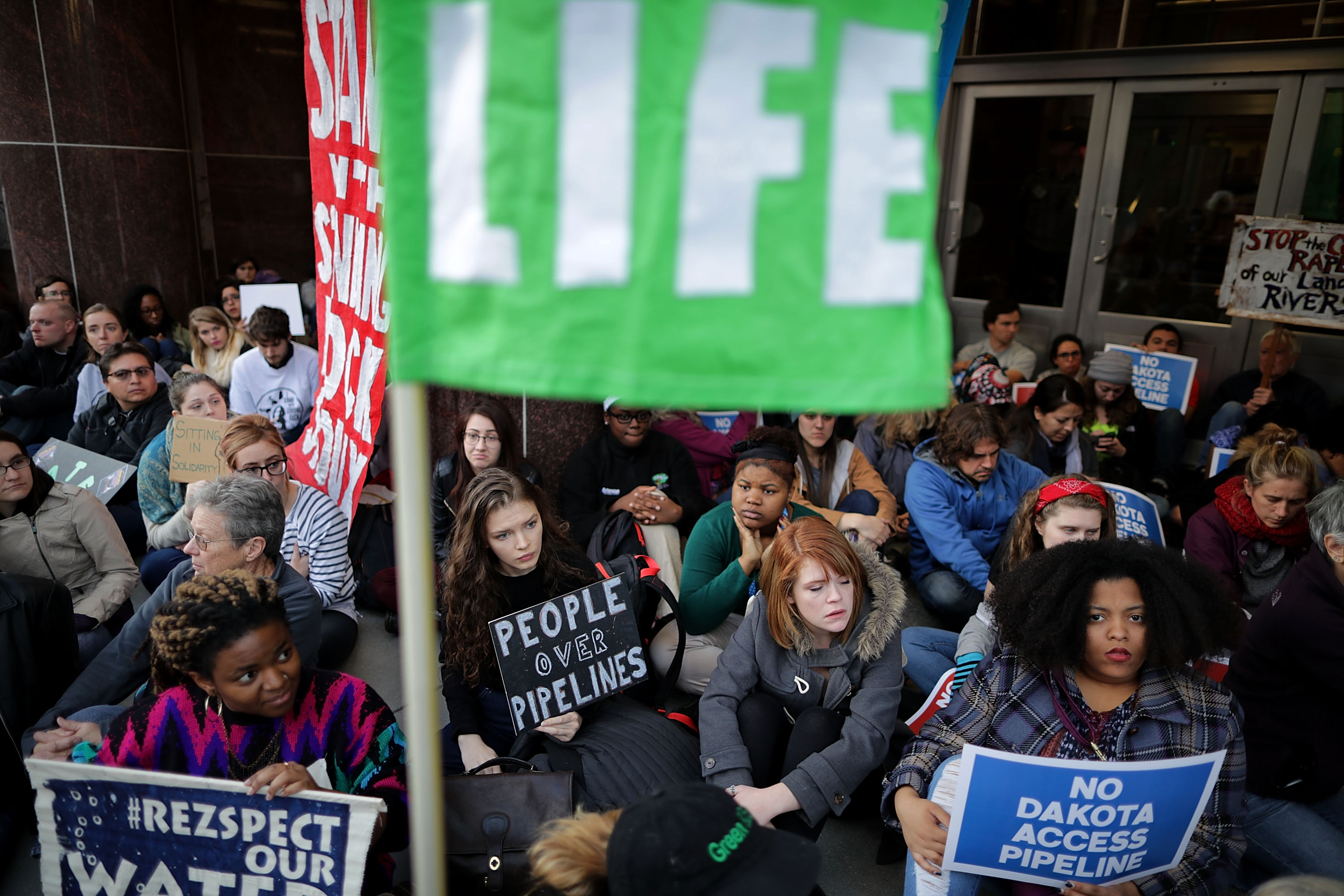
Even after months of protests over its construction and worries that it could affect the drinking water of the Standing Rock Sioux, the Dakota Access Pipeline is moving forward. Compounding threats posed by DAPL, a federal judge has ruled that Energy Transfer Partners, the company behind DAPL, can keep the public in the dark about spill risks along certain parts of the pipeline. The company sought to keep information hidden to prevent vandalism and eco-terrorism.
Per The AP:
U.S. District Judge James Boasberg said in a ruling dated Friday that information such as spill risks at various points along the pipeline should be shielded from public view but that certain details relating to how a spill might be handled don’t warrant such protection.
Two American Indian tribes who oppose the pipeline had argued that the spill risk data could bolster their case that more environmental study is needed. Attorneys for the Standing Rock and Cheyenne River Sioux didn’t immediately respond to requests for comment Wednesday.
Vicki Granado, a spokeswoman for pipeline developer Energy Transfer Partners, declined to comment, citing the tribes’ ongoing federal lawsuit over the $3.8 billion project to move North Dakota oil to a distribution point 1,200 miles away in Illinois.
In his ruling, Boasberg said that preventing “intentionally inflicted harm” was more important than “tribes’ generalized interests in public disclosure and scrutiny.” However, the company will not be allowed to shield information about “the names of waterways that could be affected by spills, and maps and descriptions of oil spill handling methods” among other things.
While this ruling is a blow, the Standing Rock Sioux and Cheyenne River Sioux tribes’ legal battle with the Army Corps of Engineers, which the tribes claim did not conduct proper environmental impact studies on the pipeline, continues. As Think Progress points out, North Dakota pipelines have cost dozens of millions of dollars over the last 20 years, and are not uncommon. Under President Trump, the Environmental Protection Agency would be greatly hampered in its ability to police companies that violate environmental laws and respond to environmental crises like an oil spill.
(Via Think Progress & The AP)
